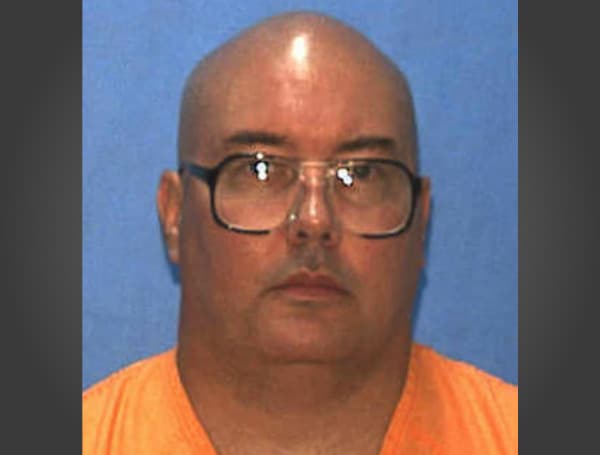The U.S. Supreme Court on Wednesday refused to block Thursday’s scheduled execution of convicted murderer Donald David Dillbeck, setting the stage for Florida to put an inmate to death for the first time since 2019.
Without explanation, the court rejected a petition filed by Dillbeck’s attorneys that centered on issues such as whether Dillbeck should be shielded from execution because of a neurological condition caused by being exposed to alcohol before birth.
Also, justices denied a requested stay of the execution, which is scheduled for 6 p.m. Thursday at Florida State Prison. The Florida Supreme Court last week also declined to halt the execution.
If Dillbeck is put to death by lethal injection, he will be the 100th inmate executed since the death penalty was reinstated in Florida in 1976, according to the state Department of Corrections website. It would be the first execution since Gary Ray Bowles was put to death by lethal injection in August 2019 for a 1994 murder in Jacksonville.
In the news: Execution Set For Florida Man Donald Dillbeck, Cop Killer Who Brutally Stabbed Woman
Dillbeck, now 59, was sent to Death Row for the 1990 murder of Faye Vann in the parking lot of a Tallahassee mall.
Dillbeck was initially sentenced to life in prison in the 1979 shooting death of Lee County sheriff’s Deputy Dwight Lynn Hall when Dillbeck was 15. But in 1990, he walked away from a catering function in Quincy where he and other inmates were working.
Dillbeck went to Tallahassee, got a knife and tried to carjack a vehicle, according to court documents. Vann, who was sitting in the car, resisted and was fatally stabbed, with Dillbeck then arrested after crashing the car. He was convicted in 1991 of first-degree murder, armed robbery and armed burglary, Department of Corrections records show.
After Gov. Ron DeSantis signed a death warrant last month, Dillbeck’s attorneys filed documents at the Florida Supreme Court and the U.S. Supreme Court arguing that he should be spared execution because of a condition known as neurodevelopmental disorder associated with prenatal alcohol exposure, or ND-PAE.
In the news: Alabama College Student Who Went Missing 47 Years Ago Identified From Bones Found In Georgia
They contended in a document filed at the Florida Supreme Court that the condition is “recognized by the medical community as an intellectual disability-equivalent condition.” The U.S. Supreme Court has ruled that executing intellectually disabled people violates the Eighth Amendment’s ban on cruel and unusual punishment.
In refusing to block the execution last week, the Florida Supreme Court said it had denied a motion on the disability issue in 2020 because it found Dillbeck and his attorneys “had failed to diligently pursue a diagnosis of ND-PAE.”
“Attempting to avoid the procedural bar of our 2020 decision and establish due diligence in bringing his (execution) exemption claim, Dillbeck argues that his exemption claim is not based on the same evidence from (the 2020) proceeding, but on a ‘sociolegal tipping point’ that ND-PAE is the equivalent of intellectual disability that is happening now, in 2023,” the Florida court’s decision said. “Even if our prior ruling did not procedurally bar him, Dillbeck’s claim still comes too late to be newly discovered evidence.”
Android Users, Click Here To Download The Free Press App And Never Miss A Story. Follow Us On Facebook Here Or Twitter Here. Signup for our free newsletter by clicking here.


